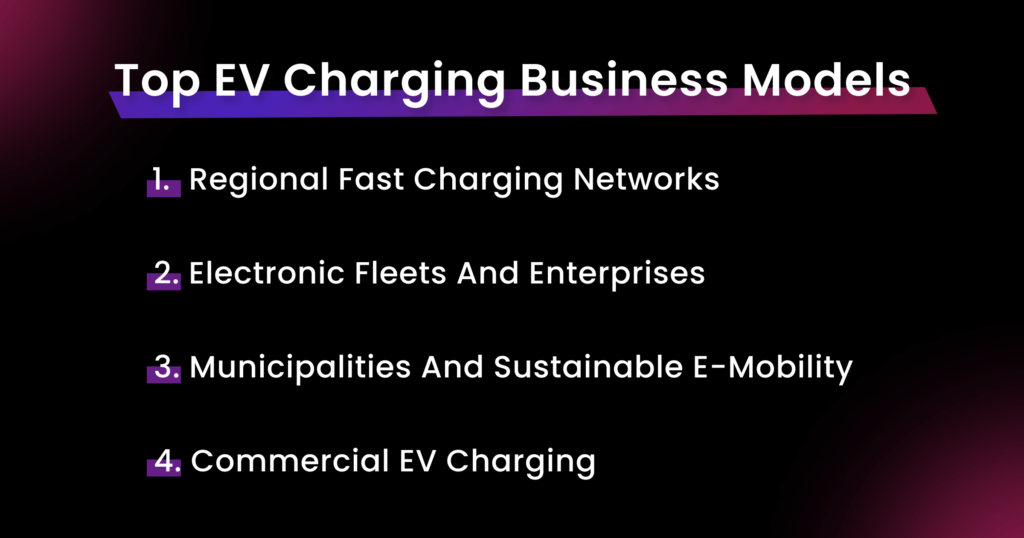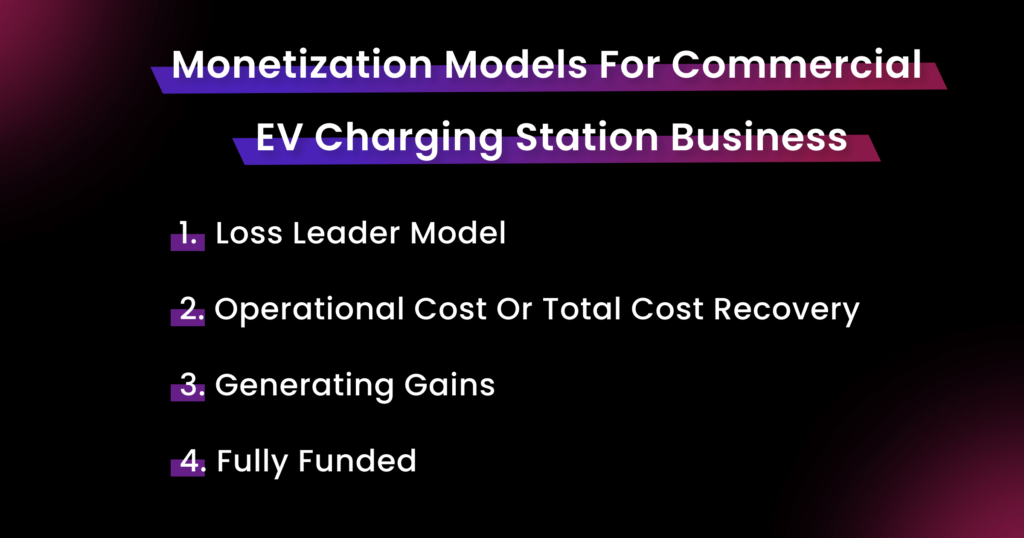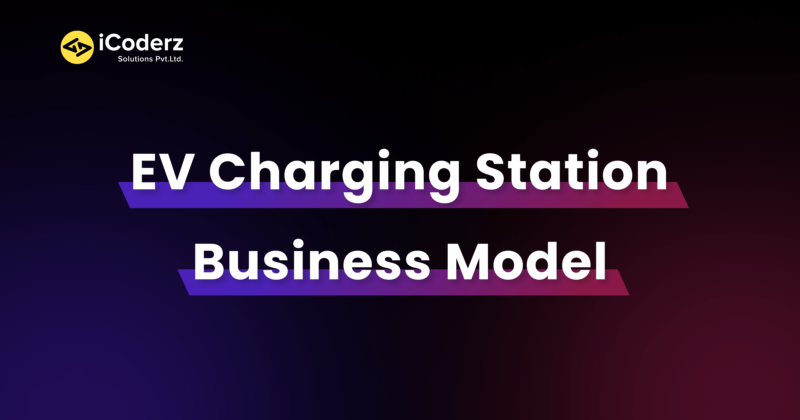Table of Contents
Introduction
Are you planning to start an EV Charging Station Business? Crafting a robust EV Charging Station Business Plan is crucial for success. Then, you must be considering different business models and which one will be the most relevant for your business? Find out the various EV Charging Station Business Models in the blog to make an intelligent and confident investment.
There are many business models like Uber Business Model For various categories, such as home, office, corridor and destination DC fast charging, and public level 2. A Successful EV Charging Station Business Model satisfies the financial needs of the stakeholders, including the EV Charging station owners and drivers.
How Do Electric Car Charging Stations Work?
All electric vehicles are not the same, nor the EV Charging Stations Franchise. So, for all-electric EVs, users can connect their electric vehicle with an electrical power source. The station will charge your EV’s battery and be done. You are good to go on a drive. It is also possible to charge some electric vehicles at home. But, it depends on your vehicle type.
How Long Does it take to Charge an EV?
The time required to charge an electric vehicle depends on the type of electric vehicle charging.
- Level 1 Electric Vehicle Chargers: Rate of 2 to 5 miles per hour.
- Level 2 EV Charging Points: Rate of 13-75 miles per hour. (15 times faster & perfect solution for home charging.)
- DC Level 3 EV Chargers: Charges 80% of battery in 10 to 30 minutes. The fastest charging option but DC fast chargers are not compatible with all EVs.
What is the EV Charging Revenue Model?
The way to earn revenue from the EV charging station business is by setting the charging fee for customers. Some EV charging stations offer free charging services but those are limited to specific areas.
You can charge customers in two ways: Pay-per-use and subscription-based model
Pay-per-use:
Under this model, people pay based on the kilowatt-hour kWh (the amount of energy being used) and the location of the charging station.
Subscription-based:
You can also go for a subscription based method of charging people. In the subscription-based model, customers pay for a whole month or a year to use the charger network.
What are the Top EV Charging Business Models?

1. Regional Fast Charging Networks
Business owners with existing premises can provide EV Charging Station Services to their customers and enhance customer experiences. They can consider investing in an EV charging Station Business as an opportunity to get an upper hand over their competitors.They can attract more customers and earn higher revenue for their businesses with EV charging station business.
2. Electronic Fleets and Enterprises
Major businesses are rapidly expanding their use of electronic fleets. As a result of pressure from workers and the need to reduce their environmental impact, fleet managers are increasingly investing in electric cars. The compelling financial rationale, however, is the primary driver of EV adoption in fleets.
Financial stability is bolstered by lower refueling expenses and more stable fuel prices. Workers like tax rebates just as much. There is potential for increased earnings by catering to gray fleets. All around the European Union, governments provide financial incentives for EV fleets. In some regions, businesses might get tax cuts, exemptions, and bonuses.
The cheap cost of maintaining an electric fleet is another selling point. In addition, modern in-vehicle and EV Charging-station technology provides fleet managers with far more useful real-time data. Gaining insight into typical driving patterns and being able to anticipate repair expenses allows for better overall operations and planning.
Fleet operators have a difficult choice when deciding on infrastructure, as they must weigh their needs for optimal capacity, the possibility of auxiliary income, and the lowest possible operational expenses.
3. Municipalities and Sustainable e-mobility
European municipalities are under increasing pressure to promote e-mobility and accelerate the widespread adoption of electric cars among their residential and commercial populations.
The need for public charging stations for electric vehicles is growing. The shift to EVs is also being pushed forward by government low-emission car initiatives. In addition to the different local and EU incentives for public fleets, most city governments have made pledges to enhance air quality and decrease pollution levels.
In addition to their fleets, many local governments also provide parking and other services to taxis, private hire vehicles, and delivery services. It is typical for municipalities to work with car clubs as a means of encouraging the use of electric vehicles (EVs) since this approach allows them to split the cost of supporting EV adoption, as well as benefit from the experience of professionals in other fields.
Some also value tourism and the public relations advantages of environmental dedication. Investing in EV charging stations and other infrastructure might lead to significant savings and new revenue streams.
4. Commercial EV charging
Businesses that have parking spaces available can offer EV Charging services. Large food chains or retailers, or hotels can consider EV Chaeging Station Business Model as they have and offer parking spaces.
Small businesses can also invest in the EV Charging Station Business with low investment and risks. Such solutions include a charging point management system (CPMS) to handle user billing.
When deciding on an EV business model, it’s necessary to take into account not just the regular expenditures involved but also the types of drivers who will be visiting the facility and the nature of the company itself.
Given the industry’s youth and rapid growth, adaptability and scalability are crucial in any strategy. Charge Points and business models vary depending on the area, so it’s important to engage with a charging provider that takes the time to learn about yours.
What are the Monetization Models For Commercial Electric Vehicle Charging Business?
There are monetization strategies to gain revenue from your commercial business model:

1. Loss Leader Model
With this EV charging station business model, businesses may afford to provide free charging for electric vehicles (EVs) by offsetting the associated expenses with the additional income generated from their already established lines of business.
To maximize the number of drivers you attract, strengthen customer loyalty, and boost in-store purchases, your company should prioritize providing a free charging station business model.
2. Operational Cost or Total Cost Recovery
This system charges users for the privilege of plugging in their vehicles. This corresponds to the running expenses, and a margin is provided to cover the hardware and installation charges if complete cost recovery is desired.
Electric vehicle owners are becoming more receptive to the idea of paying a fee to charge their vehicle, however, most will compare the cost to their own power bills. Chargepoint hosts may be able to generate income if pricing is set within the range of what drivers are willing to pay.
3. Generating Gains
This is one of the most popular EV charging stations business models. In this setup, drivers pay more to use the charging stations. This price accounts for the expenses associated with running the service, putting in place the necessary hardware, and getting it up and running.
4. Fully Funded
It is possible that a charging infrastructure supplier may offer to provide and install charge points for a company at no cost. A long-term perspective is necessary to make sure that what is being supplied is beneficial to both you and your clients.
Conclusion
Developing a comprehensive business plan for EV charging stations is pivotal for navigating the dynamic landscape of sustainable transportation.
So, now you know the various Models for EV Charging Business. It’s time to develop an online EV charging station finder application.
The demand for EV charging Stations is rising with more people preferring electric vehicles. So, it is the right time to take advantage of this surge. You can reach out to a leading EV charging station finder app development company to resolve all your queries and get the right assistance for development.
A comprehensive EV charging stations business plan is essential for success in the industry. Stay ahead of the curve, maximize revenue potential, and contribute to the future of sustainable mobility with a well-crafted and forward-thinking EV charging business plan. Call us now at 9309090932 to get a free quote and consultation for Custom EV Charging App Development Services.





